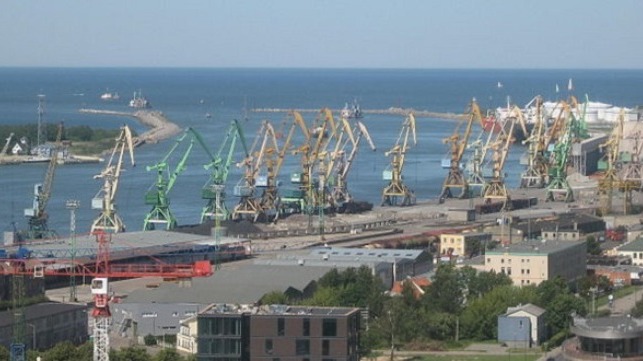IAPH and World Bank Call for Acceleration of Maritime Digitalization

The World Bank joined with the International Association of Ports and Harbors (IAPH) calling for efforts to accelerate the digitalization of the global maritime industry. Hosting a webinar to launch their new report on digitalization, the organizations expressed their belief that digitalizing the sector would bring wide-ranging economic benefits and contribute to a stronger, more sustainable recovery.
The joint report by the World Bank and IAPH was designed to assist ports and maritime transport community to accelerate digitalization. In addition to the long-term economic benefits, they pointed to the ability to minimize ship-shore human interaction which they highlighted as critical due to the current COVID-19 risks.
“In many of our client countries, inefficiencies in the maritime sector result in delays and higher logistics costs, with an adverse impact on the entire economy. Digitization gives us a unique chance to address this issue,” said Makhtar Diop, World Bank Vice President for Infrastructure. “Beyond immediate benefits to the maritime sector, digitalization will help countries participate more fully in the global economy, and will lead to better development outcomes.”
The report, entitled “Accelerating Digitalization: Critical Actions to Strengthen the Resilience of the Maritime Supply Chain,” analyzes numerous technologies applied already by some from the world’s leading port and maritime communities, including big data, the internet of things (IoT), fifth-generation technology (5G), blockchain solutions, wearable devices, unmanned aircraft systems, and other smart technology-based methods to improve performance and economic competitiveness.
The World Bank and IAPH concluded that that better digital collaboration between private and public entities across the maritime supply chain will result in significant efficiency gains, safer and more resilient supply chains, and lower emissions. Their report describes how the collaborative use of digital technology can help streamline all aspects of maritime transport, from cross-border processes and documentation to communications between ship and shore, with a special focus on ports.
IAPH Managing Director of Policy and Strategy, Dr. Patrick Verhoeven, commented: “the report’s short and medium-term measures to accelerate digitalization have the proven potential to improve supply chain resilience and efficiency whilst addressing potential risks related to cybersecurity. However, necessary policy reform is also vital. Digitalization is not just a matter of technology but, more importantly, of change management, data collaboration, and political commitment.”

that matters most
Get the latest maritime news delivered to your inbox daily.
A recent IAPH survey reveals that only a third of over 100 responding ports comply with the International Maritime Organization’s (IMO) mandatory requirement for all its member countries to exchange key data electronically. The main barriers identified to digitalize cited by the ports was not the technology, but the legal framework in their countries or regions and persuading the multiple private-public stakeholders to collaborate.
By joining with the World Bank to highlight the benefits of digitization, the IAPH hopes to encourage better collaboration and accelerate the adoption of digitalization across the maritime sector.
